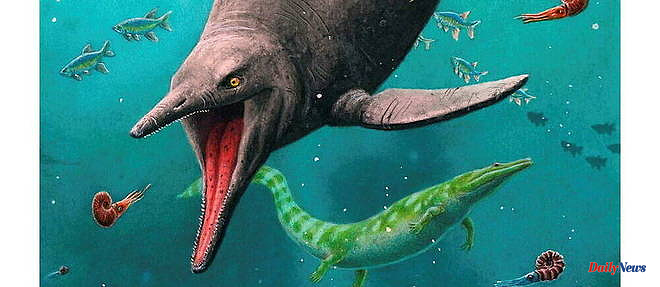In Spitsbergen, in the Norwegian archipelago of Svalbard, paleontologists have made an astonishing discovery recently relayed in the scientific journal Current Biology. Along the sides of a collapsed mountain on this island lost in the Arctic Ocean, halfway between mainland Norway and the North Pole, they got their hands on the fossil of a curious lizardfish called ichthyosaur.
The ichthyosaurs are prehistoric animals belonging to the class of reptiles, without being dinosaurs, even if they populated the oceans and the seas when the latter reigned supreme over the emerged lands.
Like them, they were so far reputed to have "appeared" after the most brutal episode of mass extinction of species that our planet has ever known. That of the end of the Permian which would have wiped out, according to the fossil record, between 90 and 96% of all known species, some 252 million years ago. After that, the surviving reptiles would have rapidly diversified to take advantage of the many depopulated ecological niches. Among them, a terrestrial lizard would then have ventured into the water and then adapted to life on the high seas: the common ancestor of all ichthyosaurs. This is one of the first not-quite-ichthyosaurs that paleontologists expected to find in the islands of Svalbard… Except that the specimen whose remains they discovered, 250 million years old, does not seem not be half an ichthyosaur.
He's the oldest ever discovered and he's nothing like a shy dabbling lizard! He already seems to have all the characteristics of a sea animal more like a dolphin than an iguana. Is it possible that lizards on earth turned into mermaids in just two million years?
This is the whole question that new discoveries may help to answer in the future… It would not be the first time that a discovery has suggested that ichthyosaurs are champions of evolution. The fact remains that, otherwise, we will have to rewrite a chapter of history where the ichthyosaurs, which disappeared around twenty-five million years before the dinosaurs, would be among the rare survivors of the mass extinction at the end of the Permian.












